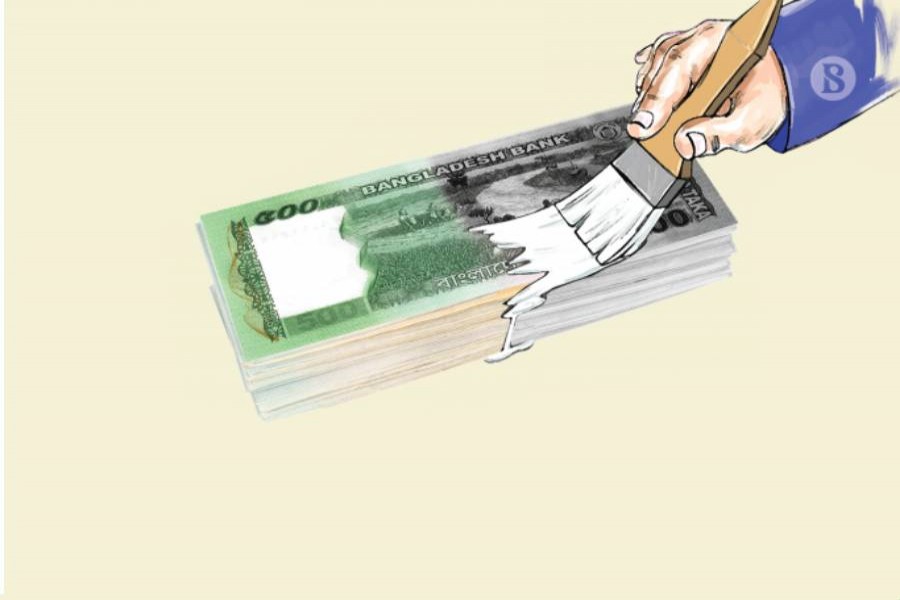
Published :
Updated :

When the Finance Minister in his Budget speech announced his government's plan to legalise laundered money from the country through levying taxes, he was surely aware that the move would trigger protest, but not indeed from his party members-let alone MPs. This has happened, much to the dismay of the ruling party. The United News of Bangladesh (UNB) reports that lawmakers from both the ruling and opposition parties on Sunday heavily criticised the proposal to legalise laundered money in parliament. The focal point of their objection is legitimising grossly unethical act by unethical mechanism. The process, they said, is not at all acceptable as it is likely to open floodgates of money flight in the coming days.
There are uproars every year over whitening of black money, but legitimising a far more criminal act like money laundering has raised many an eyebrow as to the utter naivety of the proposal in the minister's budget speech. A key argument of the lawmakers' protest is that if the criminality of such a high degree is to be absolved -- by imposing some taxes to take the edge off the misdeed -- there was no point in framing anti-money laundering law, and bypassing it would be defying the law by none other than the state itself. They urged upon the finance minister to revise the proposal and find suitable means in this regard.
For sometime now, there were reports that the government was going for a mechanism to bring back huge amount of money siphoned off the country through various conduits. An inter-agency taskforce was restructured recently for gearing up effort to chalk out possible measures in this regard. The issue, because of its enormity and scale, has been receiving media focus for quite a while -- set off by rough estimates made by international bodies about the money flown off the country over the years to so called tax havens and overseas financial institutions. There were moves, reportedly within the country, to combat the situation through collaboration of key state agencies such as the central bank, national board of revenue (NBR) and the law enforcing agencies, but unfortunately nothing in terms of hitting the target has so far been noticed. In fact, there were no targeted shots at all. The job, no doubt, is challenging as there is no one or two known modes through which money flies from the country. People from various affluent segments of the society are allegedly involved in siphoning off money-- billions of taka every year through various means. It is not only confined to false trade declarations - over-invoicing in import for example, or capital flight by multinationals-- once believed to be the key mode of money flight, but a widening gyre that among others includes the most practised mode of money transfer called hundi.
The proposal of amnesty extended to money launderers is clearly a reflection of the government's failure to rein in the misdeed. But staying away must not be the solution, rather there should be concerted efforts to dig deep into the matter and also create strong preventive measures to stop money flight.


 For all latest news, follow The Financial Express Google News channel.
For all latest news, follow The Financial Express Google News channel.